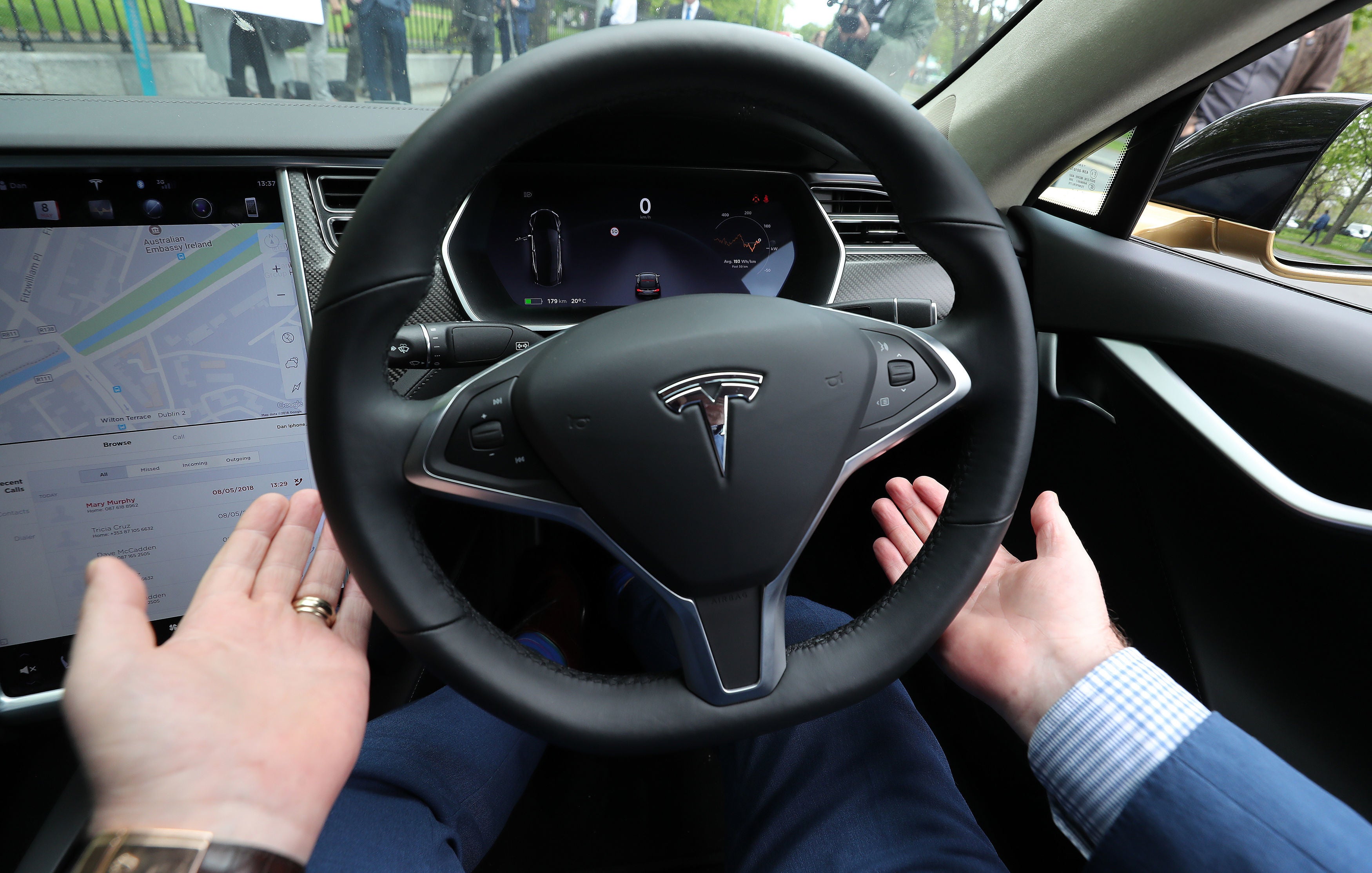Self-driving car users should not face prosecution over road crimes, Law Commission says
Users of self-driving cars should not face prosecution for dangerous driving, speeding or jumping red lights, an official report as recommended

Users of self-driving cars should be given immunity from a wide range of road crimes, Britain’s law commissions have said.
The Law Commission for England and Wales and the Scottish Law Commission have suggested drivers should not face prosecution for a range of motoring offences, such as dangerous driving and jumping red lights.
They argue the driver should be re-defined as a “user-in-charge”, who would have different legal responsibilities.
The commissions propose the creation of an Automated Vehicles Act to reflect the “profound legal consequences” of self-driving cars. Under the re-written rules, the person in the driving seat would not be responsible for how the vehicle has been driven. Instead the company that authorised the car would face sanctions if anything went wrong.
Car makers must also be clear about the difference between self-drive vehicles and those with driver-assist features.
A report summarising the Law Commissions’ findings said: “While a vehicle is driving itself, we do not think that a human should be required to respond to events in the absence of a transition demand (a requirement for the driver to take control).
“It is unrealistic to expect someone who is not paying attention to the route to deal with (for example) a tyre blow-out or a closed road sign. Even hearing ambulance sirens will be difficult for those with a hearing impairment or listening to loud music.”
The “user-in-charge” will still be in charge of some tasks, such as making sure the car is insured and checking passengers are wearing their seatbelts.
Matthew Avery, chief research strategy officer at Thatcham Research, which was involved in the consultation, said: “We applaud the recommendations that compel carmakers to use appropriate terminology when marketing these systems, to prevent motorists from becoming convinced that their car is fully self-driving when it is not.
“In the next 12 months, we’re likely to see the first iterations of self-driving features on cars in the UK.
“It’s significant that the Law Commission report highlights the driver’s legal obligations and how they must understand that their vehicle is not yet fully self-driving.”
Transport minister Trudy Harrison said: “The development of self-driving vehicles in the UK has the potential to revolutionise travel, making every day journeys safer, easier and greener.”
The Department for Transport have already given the green light to automated lane-keeping systems (ALKS), which allow drivers to take their hands off the wheel.
Drivers using ALKS don’t need to monitor the road, but must be able to take over within 10 seconds when requested by the system.
Last week, prosecutors in California filed two counts of vehicle manslaughter against the driver of a Tesla who went through a red light - while on autopilot - and hit another car and killed two people.
Join our commenting forum
Join thought-provoking conversations, follow other Independent readers and see their replies
Comments
Bookmark popover
Removed from bookmarks